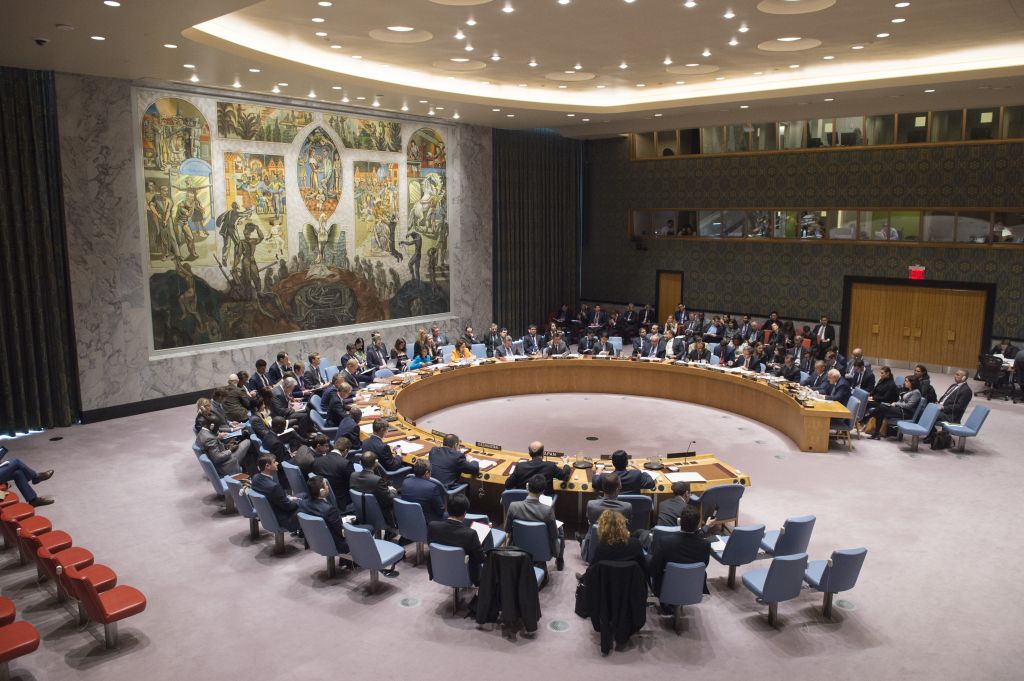U.N. extends South Sudan arms embargo for another year despite opposition

The resolution, sponsored by the United States, passed with nine votes in favor and none against, while six members abstained, including China, Russia, Algeria, Somalia, Pakistan and Sierra Leone.
The embargo, first imposed in 2018 following years of ethnic conflict that the U.N. estimates has claimed nearly 400,000 lives, marks its seventh renewal. It also includes targeted sanctions such as asset freezes and travel bans on individuals.
South Sudan’s government has consistently opposed the embargo, arguing it hinders efforts to build a unified national army under the terms of the 2018 revitalized peace agreement.
Juba argues or insists that the peace agreement is not about to fall apart, even though fighting has resumed between key signatories to the deal.
U.S. representative John Kelley welcomed the renewal and urged South Sudanese leaders to de-escalate political tensions and violence, negotiate in good faith, and restore peace.
“We welcome South Sudan Panel of Experts’ mandate, and we welcome the renewal of the arms embargo, travel ban and asset freeze measures for an additional 12 months. Escalating violence in recent months has brought South Sudan to the brink of civil war,” Kelley said.
He further urged the transitional government to “deliver all steps necessary to advance the peace agreement and conclude the transitional period.”
China and Russia have repeatedly argued that the situation in South Sudan has stabilized and that President Salva Kiir Mayardit’s government should be allowed to manage its own security affairs.
Russia’s representative said the sanctions hinder the implementation of the revitalized peace agreement and security reforms.
“We cannot agree to [a] direct link established between the arms embargo and the internal political processes. The issue of easing Security Council sanctions on South Sudan is long overdue,” the Russian envoy said, adding that current restrictions “are putting a break on a successful political process…as well as complicating deployment and proper equipping of the national armed forces.”
South Sudan’s ambassador to the U.N., Cecilia Adeng, also expressed disagreement, arguing that the U.N. measures impede the country’s efforts to achieve peace and create security vulnerabilities. She reiterated South Sudan’s commitment to cooperating with the U.N.
“We believe the outcome is inconsistent with the council’s steadfast support for peace benchmarks in South Sudan. The lifting of the sanctions and the arms embargo is not only a matter of national security or sovereignty, but also a matter of economic opportunity and dignity,” Adeng said.
“The cost of sanctions is being borne not only by the government, but by ordinary citizens. These measures create barriers to growth, delay developments, discourage foreign investment and leave the state vulnerable to non-state actors and outlaws,” she added.
The embargo restricts weapons sales to both government and opposition groups and forms part of a broader sanctions regime.
The renewal comes shortly after a March report by the U.N. Panel of Experts on South Sudan highlighted limited progress on the peace agreement. The report also found that weapons recently seen in the Sudan conflict may have entered South Sudan, possibly due to spillover from the conflict.
The situation in South Sudan itself has seen escalating tensions, with President Salva Kiir Mayardit detaining First Vice President Riek Machar following recent unrest in Nasir of northeastern state of Upper Nile.
The tensions in Nasir involved a local tribal militia known as the White Army, which was allied to the main armed opposition group during the 2013-2018 civil war, and the South Sudan People’s Defense Forces (SSPDF), the government army.
South Sudan, which gained independence in 2011, has been ravaged by conflict. A revitalized peace agreement signed in 2018 by President Salva Kiir and opposition leader Riek Machar aimed to end the violence, including elections originally scheduled for December 2022.
These elections have been postponed three times, now slated for December 2026, but remain unlikely due to unresolved issues.
The resolution extends the sanctions until May 31, 2026, while reiterating the council’s willingness to modify or lift the embargo based on progress towards implementing the power-sharing agreement.
sudanspost.com